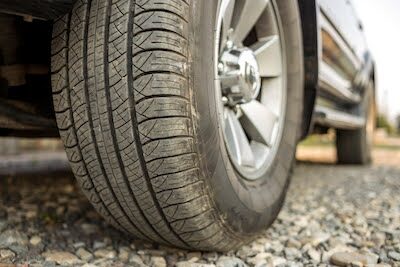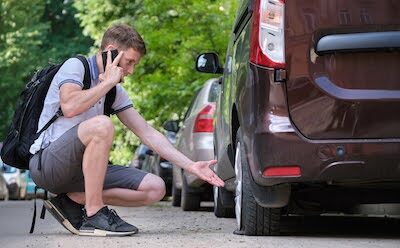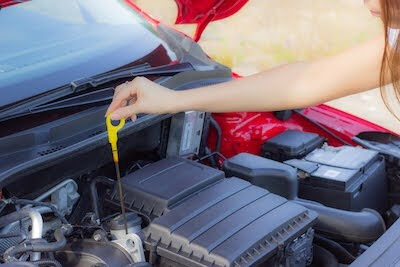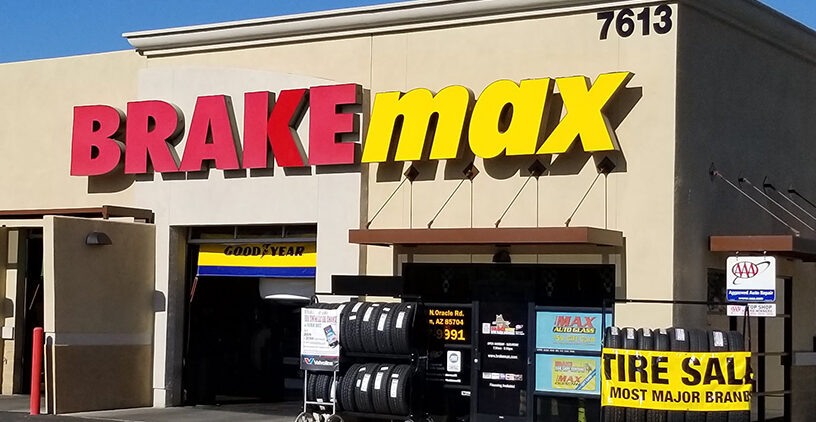Auto Repair Safety Guide for Teen Drivers: Preparing Your New Driver

Driving is a significant milestone for teens, marking the beginning of newfound independence and responsibility. As parents, ensuring your teen's safety on the road is paramount, especially when it comes to understanding auto repair and maintenance.
Navigating the auto repair world can be daunting, especially for novice drivers. Equipping yourself with the knowledge and skills to address common car issues empowers your teen to confidently handle unexpected situations on the road.
This comprehensive guide covers everything you need to know to keep your teen driver safe and secure behind the wheel, along with essential tips and techniques for educating them about proper auto care practices. By demystifying auto repair concepts and offering practical advice, we aim to arm you with the tools necessary to instill confidence in your teen's driving abilities.
Understanding Basic Auto Repair Concepts
Understanding some basic auto repair concepts can empower you to take better care of your vehicle's safety and performance. By grasping the importance of regular maintenance and familiarizing yourself with common car parts and their functions, you can help your teen driver keep their vehicle reliable on the road.
Importance of Regular Car Maintenance
Regular car maintenance isn't just about keeping your vehicle looking good; it's vital for its overall health and longevity. Simple tasks like regular oil changes, tire rotations, and checking fluid levels can prevent costly repairs down the road, ensuring your teen driver's vehicle remains safe and dependable.
Main Car Parts and Their Functions
It’s a good idea to make sure that your teen knows the main parts of the vehicle and their functions:
- Engine: Considered the heart of any vehicle, the engine generates power by burning fuel and propels the car forward.
- Brakes: Vital for safety, brakes are responsible for slowing down or stopping your vehicle when needed, ensuring control while driving.
- Transmission: This system transfers power from the engine to the wheels, enabling the vehicle to change speeds and drive forward or backward.
- Suspension System: Absorbing shocks from the road, the suspension system ensures a smooth ride by keeping the tires in contact with the ground.
- Car Battery: The car battery provides electrical energy to start the engine and power various components, such as lights, the radio, and air conditioning.
Understanding these basic car parts and their functions can help you and your teen grasp how different components work together to keep the vehicle running smoothly and safely.
Vehicle Safety Tips for Young Drivers
Keeping your young driver safe on the road is a top priority for any parent. Educating them on essential auto repair and maintenance can go a long way toward ensuring their safety behind the wheel. Here are some tips to help your teen driver confidently navigate vehicle repair and maintenance.
Tire Safety and Maintenance
Tires are the foundation of your vehicle's safety. Teaching your teen the importance of tire safety and maintenance can prevent accidents and keep their car running smoothly. Regularly check the tire pressure to ensure the tires are correctly inflated to the manufacturer's recommendations.
Inspect the tread depth to ensure there is enough grip on the road, especially in wet or icy conditions. Encourage your young driver to visually inspect the tires for any signs of damage, such as cuts or bulges, and immediately address any issues to avoid blowouts on the road.
Brake System Basics
Understanding the basics of the brake system is vital for safe driving. Teach your teen driver about the signs of brake issues, such as squeaking or grinding noises when applying the brakes, vibration in the brake pedal, or the vehicle pulling to one side when braking. These could indicate worn brake pads or potential brake system failures.

Encourage your young driver to schedule regular brake inspections and maintenance to ensure their brakes are in optimal condition. Remember, a well-maintained brake system can make all the difference in avoiding accidents on the road.
By imparting these things to your teen driver, you are equipping them with the knowledge and skills to be responsible and safe behind the wheel. Stay committed to regular maintenance and inspections to promote safe driving habits and ensure your teen’s well-being while driving.
Emergency Preparedness and Handling Breakdowns
Making sure your teen driver is equipped to handle emergencies on the road is crucial for their safety and your peace of mind.
Creating an Emergency Kit
Being prepared with an emergency kit can make a significant difference in unexpected situations. Here are some essential items to include in your teen's car emergency kit:
- Flashlight: Opt for a durable, battery-powered flashlight and extra batteries.
- Basic tools: Keep a set of tools in the vehicle, such as a screwdriver, pliers, zip ties, and a wrench for minor repairs.
- Jumper cables and portable charger: Ensure your teen can jump-start their car and charge their phone in case the battery dies.
- First aid kit: Include bandages, antiseptic wipes, gauze pads, and necessary medications.
- Blankets and extra clothing: Have warm clothing and blankets in case of cold weather or emergencies.
- Non-perishable snacks and water: Store snacks and water bottles for sustenance during unexpected delays.
Dealing With Common Breakdown Situations
Knowing how to handle common breakdown scenarios can help your teen driver navigate challenging situations. Here's a guide on how to address some typical scenarios:
- Flat tire: Demonstrate how to change a flat tire safely and make sure they have all of the necessary tools in the vehicle. Teach your teen how to locate the spare tire, use a jack to lift the car, remove the lug nuts, replace the tire, and lower the vehicle. Encourage them to practice these steps in a controlled environment to boost their confidence in handling unexpected roadside situations.
- Dead car battery: Walk your teen through jump-starting a car using jumper cables. Ensure they know how to identify the battery’s positive and negative terminals.
- Running out of gas: Encourage your teen to monitor their fuel level and plan for fill-ups before the gas runs out. Teach them the importance of keeping the gas tank at a reasonable level.
- Overheating engine: Explain the signs of an overheating engine and instruct your teen to pull over, turn off the engine, and wait for it to cool down before attempting to drive again.
By preparing your teen driver with an emergency kit and the essential skills to handle breakdown situations, you can empower them to stay safe on the road and respond effectively to unexpected events. Auto repair becomes more manageable when equipped with the right knowledge and tools.
Vehicle Inspection and DIY Maintenance
When it comes to ensuring your teen driver's safety, proper routine vehicle inspection and basic maintenance are key. Teaching your teenager these essential skills fosters independence and instills a sense of responsibility when it comes to vehicle ownership. Here's a guide to help your teen master the basics of auto repair.

Routine Inspection Checklist To Show Your Teen
- Tire pressure and tread depth:
- Check tire pressure regularly, ensuring it matches the manufacturer's recommendations.
- Use a pressure gauge to measure the PSI and inspect the tread depth for signs of wear.
- Fluid levels:
- Regularly check engine oil, brake fluid, transmission fluid, and coolant levels.
- Top off or replace fluids as needed to maintain optimal performance.
- Lights and signals:
- Test headlights, taillights, turn signals, and brake lights to ensure they work correctly.
- Promptly replace any bulbs that are dim or burnt out.
- Brake system:
- Listen for any unusual noises when braking.
- Check brake pads and rotors for wear and tear and replace them if necessary.
- Car Battery health:
- Check for any corrosion on the battery and ensure it is securely mounted.
- Test the battery's charge and replace it if it shows signs of deterioration.
Basic Maintenance Tasks Your Teen Should Be Comfortable With
- Checking engine oil:
- Emphasize the importance of routine oil changes for engine health and longevity.
- Help them determine the best oil change interval schedule for their vehicle.
- Replacing air filters:
- Show your teen how to locate and replace the engine and cabin air filters.
- Explain how clean filters improve engine performance and air quality inside the car.
- Checking and topping up fluids:
- Stress the significance of maintaining proper fluid levels for optimal car performance and safety.
- Show your teen how to check essential fluid levels, such as engine oil, brake fluid, coolant, and windshield washer fluid. Ensure they know how to identify the fluid reservoirs, check levels, and top off when necessary.
- Changing wiper blades:
- Guide your teen through removing old wiper blades and installing new ones.
- Highlight the importance of clear visibility during inclement weather conditions.
- Car Battery maintenance:
- Educate your teen on basic car battery care, such as cleaning terminals, checking connections, and replacing a battery when needed.
- Discuss the importance of regular battery maintenance to prevent unexpected breakdowns.
Equipping your teen driver with this knowledge empowers them to handle minor car issues independently and stay safe on the road. Encourage hands-on practice in a safe environment to reinforce their learning and promote responsible car ownership.
Remember, mastering auto repair basics and fostering a proactive approach enhances their driving experience, and promotes a culture of responsibility and self-reliance behind the wheel.
Choosing a Tucson Auto Repair Shop
Choosing a reliable Tucson auto repair shop becomes an important decision when it comes to your teen driver’s safety on the road. A trustworthy repair shop goes beyond just fixing your car; they provide quality service and inspections, giving you peace of mind. This means knowing your teen's vehicle is in good hands, with mechanics who use top-notch parts and prioritize safety.

With a reliable shop handling maintenance and repairs, you can be more confident that your teen's car will run smoothly and safely whenever they're behind the wheel.
Qualities To Look for in an Auto Repair Shop:
- Reputation: Check online reviews and ask friends and/or family for recommendations. A good reputation is a strong indicator of reliable service.
- Certifications: Look for certifications like ASE (Automotive Service Excellence) which demonstrates their mechanics’ skills and knowledge.
- Experience: An established track record indicates the shop has dealt with a variety of issues and knows how to handle them efficiently.
- Transparency: Choose a shop that communicates openly, provides detailed estimates, and explains repairs in a way that is easy to understand.
- Warranty: A reputable auto repair shop should offer a warranty on parts and labor, giving you confidence in the work done on your teen driver's car.
Questions To Ask a Mechanic:
- What exactly is the problem with the vehicle? A good mechanic should be able to explain the issue in simple terms without unnecessary jargon.
- Can you provide an estimate? A detailed estimate allows you to understand the costs involved before committing to any repairs.
- How long will the repair take? Knowing the timeframe helps you plan for alternative transportation if needed.
- Do you offer a warranty on repairs? A warranty ensures that the work done is guaranteed.
- Are there any maintenance tips for this specific vehicle? Obtaining guidance on maintaining the car can prevent future issues and keep it running smoothly.
By considering the above factors and asking the right questions, you can choose an auto repair shop that prioritizes safety and reliability, ensuring your teen driver's vehicle is well-maintained for their journeys on the road.
Trust the Local Experts To Keep Your Vehicle As Safe as Possible on the Road
Ensuring your teen driver is equipped with the knowledge and skills to handle fundamental auto repair issues is crucial for their safety on the road and can enhance their driving experience. By proactively teaching teens the basics of auto maintenance and repair, you empower them to handle minor car issues independently and confidently and become safer, more informed drivers.

Just like learning to drive, understanding auto repair takes practice and patience. Encourage your teen to ask questions, seek guidance, and practice preventive maintenance.
For auto repair in Tucson, you and your teen deserve the best! Here at BRAKEmax Tire & Service Centers, we aim to be your Tucson one-stop auto shop. Our expert technicians will meticulously maintain your teen’s vehicle, while our friendly staff provides exceptional customer service.
Auto Repair FAQs
What is the most common auto repair?
Routine maintenance like oil changes indeed keeps your car running smoothly, but when it comes to repairs needed during everyday driving, brake problems are the most common.
Brakes are essential for safety, and worn-out pads, rotors, or malfunctioning sensors can all compromise your ability to stop effectively. Any sign of trouble with your brakes shouldn't be ignored, so it's critical to schedule a brake repair service as soon as possible.
How much does it cost to diagnose a car?
Vehicle diagnostics can vary in cost depending on your area, the type of repair shop, and the car's problem itself. The mechanic will use their time, skills, and specialized tools to find the culprit. While some shops might offer basic checks for free, others charge an hourly labor rate.
To avoid surprises, call around and ask about diagnostic fees and request an auto repair estimate before you visit a shop. This way, you'll better understand what to expect budget-wise.
Will a tune-up make my car run better?
In many cases, a tune-up can definitely improve your car's performance. By replacing worn parts like spark plugs and air filters, a tune-up can restore lost power, improve fuel efficiency, and reduce emissions. However, a tune-up might not be the complete fix if your car has a more specific underlying issue. It's always best to consult a mechanic to diagnose any problems and recommend the most suitable service.
Are local repair shops cheaper than dealerships?
While dealerships undoubtedly have their place, local Tucson car repair shops often win out in affordability. Their smaller size means lower overhead costs, which translates to savings for you. But that doesn't mean lower quality service!
Reputable local shops frequently employ experienced mechanics and are equipped with the latest tools to diagnose and fix your car effectively. You usually get a more personalized service experience with a local mechanic who will take the time to explain the repair process. Plus, auto shops like BRAKEmax offer great auto repair coupons and financing options.
What happens if I don't service my car?
Putting off necessary car maintenance and auto repair services might seem like a way to save money in the short term, but it can backfire in the long run. Essential fluids like oil break down over time, and without fresh oil, your engine's parts will grind against each other instead of being smoothly lubricated. This increased friction can lead to premature wear and tear, potentially resulting in expensive repairs or even causing your engine to seize.









